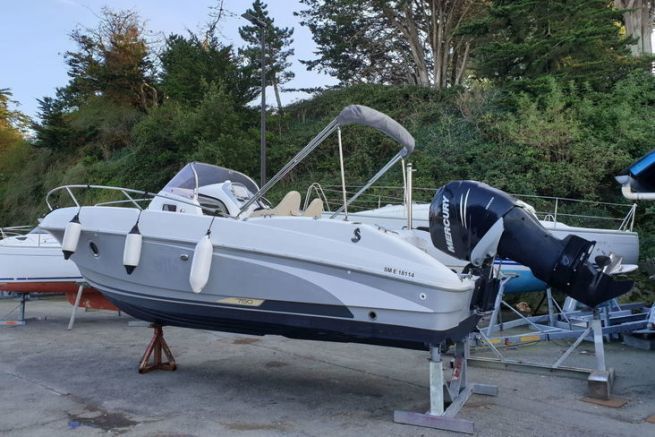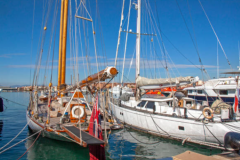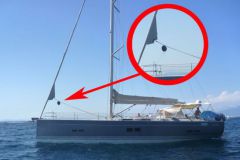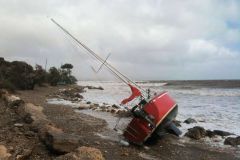" This visit is a visual examination, made under the condition of satisfactory parts of the vessel not accessible "If you've ever had an expert report in your hands, those few seemingly innocuous words are there.
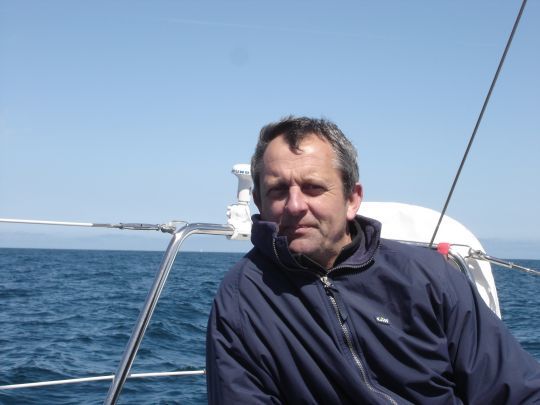
" With this sentence "Robert Le Brunet - Maritime surveyor in Dinard (Ille-et-Vilaine) explains i explain to the recipient of the expertise, whether it is an insurer or a potential buyer, that I could only see what was visible. This is a crucial truism for the buyer, because it sets a framework for my expertise. Of course I can only talk about what I have seen. The rest, I am a visionary to talk about it, I rely on experience on the one hand, on feeling on the other hand to try to understand and explain what seems to represent the state of an element or an invisible part. "
Expertise is never destructive
The rule is simple and logical, an expertise, especially for the purchase, never uses a destructive method. An expert will never core the boat's structure to assess the state of the sandwich that makes it up. " Imagine for a moment that this core indicates that the structure is perfect, but that, badly plugged, it brings water and destroys this structure. This is why, during my experiments, my only physical action on the elements will be limited to scratching, with a knife blade, valves or superficial traces to see what is hidden under the salt layer, for example. Never any action that is not standard to the manufacturer's recommendations ".
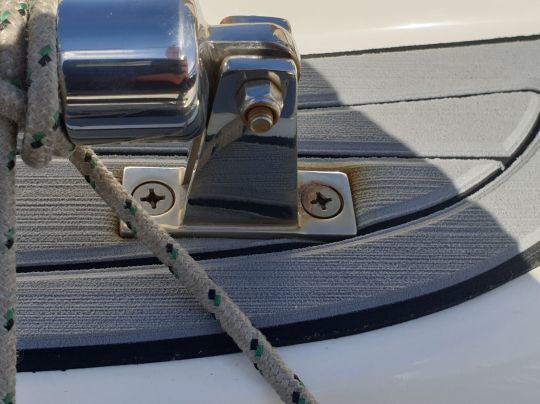
The insurer undertakes after the expertise
The expert does not make decisions. His job is to expose a state at a given moment on a defined space. This analysis, given to the insurer or the buyer, allows them to make an informed decision. Robert explains: " When I conclude an appraisal, I indicate, in the case of an insurance value appraisal, whether the declared price of the boat is in line with the condition I have observed. This is an indicator that will allow the insurance company to make a decision whether or not to cover the boat in question."
Consequently, it is the insurer who makes a commitment to its insured ( in the case of a valuation at insurance value ). The expert makes at least a moral commitment to the company, which is free to stop using him if it is dissatisfied with his services.
The expert is insured
Of course, if a glaring error by the expert occurs, he or she is responsible for that error. " If I forget to operate a valve and a boat sinks because of this oversight, my professional liability insurance will compensate for the costs inherent in my error. It can therefore be considered that my expertise is covered and that a real level of guarantee exists, as for all professionals. "
This coverage has its limits. It does not insure what the boat's insurer does not cover. " I had the opportunity to carry out an expertise on a boat whose structure had been completely destroyed and for which the insured required coverage. As soon as I put my bag on the deck, the glass canvas broke. There is no way I could have my insurance coverage here, it was the thing that was appraised that was not able to be appraised "says the Breton expert.
Perfect expertise does not exist
" In order for an expertise to be totally unassailable, it would be necessary to be able to dismantle the entire boat, piece by piece, and to examine each element with X-rays, MRI or whatever technology would allow to examine the interior of the elements "explains the professional. This is obviously impossible and the reason that leads the expert to go as far as possible, but " not too much either ". " A nut, for example, may show no trace of oxidation, but break when disassembled. It is the visual aspect of this nut that will be evaluated, possibly by removing the dust, not its mechanical resistance "adds Robert.
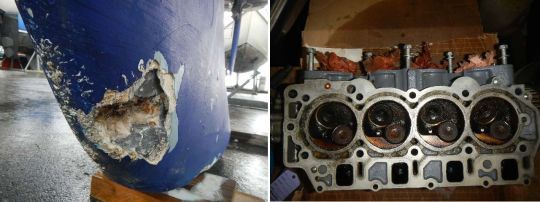
One thing is indisputable, which the expert wishes to point out: " A properly maintained boat, kept as clean as possible and whose owner can present all maintenance documents, will inevitably be in better condition according to expert opinion than a dirty boat whose maintenance has been carried out more or less regularly. Generally, I get a pretty clear opinion on the condition of a boat after a few seconds just by looking at it, very often confirmed afterwards. "
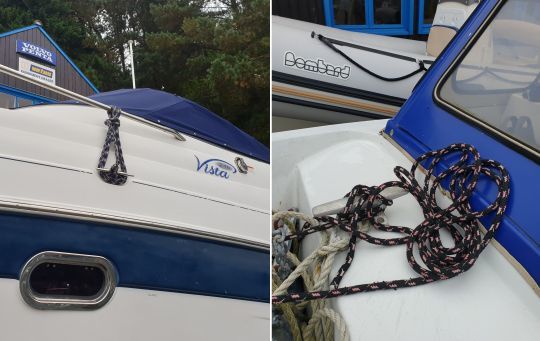
Speaking of advanced expertise, the expert tells us an anecdote that speaks of this attempt at perfect expertise: " A few years ago, a shipyard whose name I won't mention, intervened to repair a transom. As a precaution, this yard, after removing the plywood engine support boards, wanted to drill holes in the boat's sandwich. They made 4 or 5 cores in different places that they plugged up. This meant that the transom, instead of being drilled in 4 or 5 separate places to attach the engine, had about 10 weak points. This means that it was no longer able to safely support the thrust of the motorization. The entire transom had to be redone as a precaution ".
In boating too, is the best the enemy of the good?
